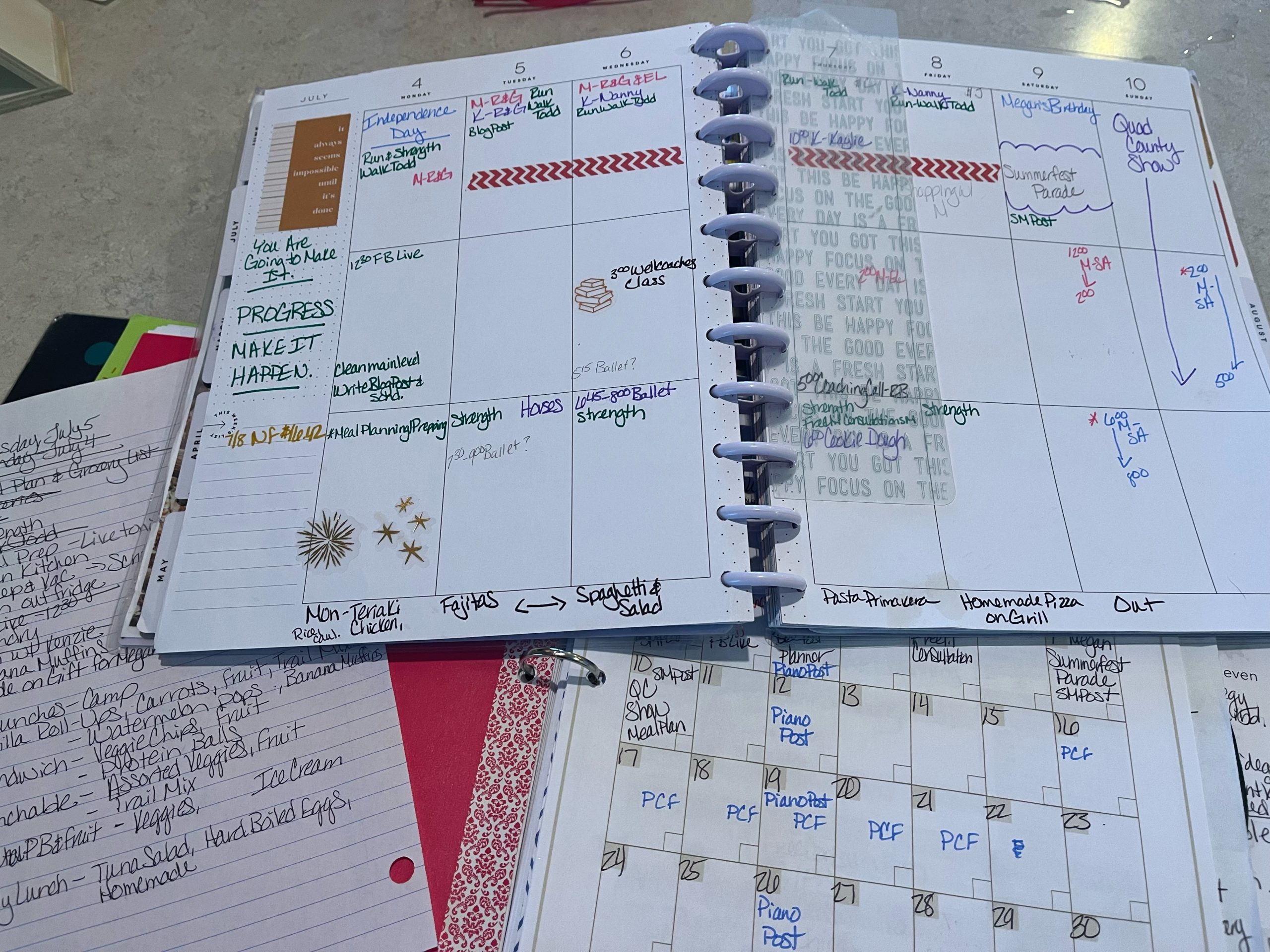If you have ever tried to change a habit or accomplish a task, you probably know that having a plan for how to do it yields better results that just winging it. Even if that plan is generally in your head, you have a better chance of making the progress that you want by thinking through how you are going to accomplish whatever it is you want to do.
The author D.B. Hurley writes about how having a plan can help you. Among other things, Hurley states that having a plan can help identify goals, offers organization, gives perspective, and helps identify problems. When we just tackle a project, job, or new habit without having given it some thought first, we may not do tasks in a logical order. We may have to go back and redo things when we run into barriers. We may do things out of order causing us to have to go back and do them again. If it’s a really big habit to change or a really big project you are working on, you may likely break it down into pieces that are easier to accomplish.
Let’s say that you want to clean your garage. One way of doing this is to think through each part of the garage and what needs to be done in each area. As you think through each area, you may find some commonalities, like sweeping the floor under the boxes or totes as you move them. Other areas may have very specific tasks such as sorting through tools or cans of old paint that are only in one part of the garage. Thinking through what you want to do in each area can help you group tasks whether it is doing all the sweeping at once or working on all of the tasks for one section at a time. If you are jumping from sorting through a box, sweeping, checking paint cans, rearranging a shelf and then going back to that first box you started with, you can easily feel like you haven’t accomplished anything, get distracted from a task thinking about something else that needs to be done, and skipping important details. Having a garage cleaning plan also helps you break down tasks on a timeline. You may know that you have two evenings one week dedicated to one section of the garage and can tackle the rest of it on the weekend.
Applying this same thought process to changing health habits can help you break down the tasks into smaller pieces, identify how long it might actually take to complete them, and the steps you need to take to work on them. I worked with a family once who never ate meals at the dining room table because it was always covered with toys, mail, papers, and all of the things. The family identified eating at the table as something they wanted to work on. Instead of jumping straight to eating at the table, we talked about what they were going to do with the things piled on the table, identified a place for school papers and mail, and made plans to get a tote to put the toys in. That was our first week. During the second week, we worked on actually putting the papers, mail, and toys where they said they would. Finally, during the third week, the family started eating at the table.
The same coaching techniques that we use for creating healthy habits can be used for almost anything. Have a child who is very unorganized with their schoolwork? A teenager who is overscheduling themselves? Sitting down with them and developing a plan can help them focus themselves and know what to do first, second, etc. This can be especially beneficial to teens who are balancing school, activities, and jobs and can’t figure out how to get homework done, work the hours they want to, and still be able to participate in their activities. The plan provides structure and accountability. You can even develop a contingency plan for when things don’t go the way you thought they would.
As we move into the new school year (yes, I know no one wants to talk about that already), having a plan for yourself for exercise and meals can be invaluable. You will feel so much less stress knowing that you CAN fit it all in, serve healthy meals, and still get a few loads of laundry done. For your student, having a plan for their homework, chores, and activities can mean the difference between overwhelm, missing assignments, low grades, and unnecessary arguments at home.
So how important is it to have a plan? Try cleaning your garage without one and let me know how it goes.
Peace from the Edge,
Julia

